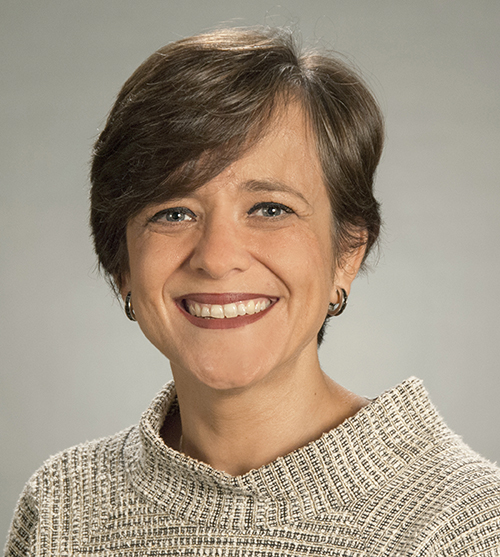
On University at Albany Week: One community resource is well positioned to help people engage with AI.
Maria Gascó-Hernandez, research director at the Center for Technology in Government and Associate professor of public administration and policy, explores.
Mila Gascó-Hernandez is the Research Director at the University at Albany’s Center for Technology in Government (CTG UAlbany). She has worked for a wide variety of organizations, providing expertise in the areas of information and knowledge in society.
At CTG UAlbany, Gascó-Hernandez has led several important projects, including one about the role of public libraries in enabling smart, inclusive and connected communities.
In addition to her role at CTG UAlbany, Gascó-Hernandez serves as an associate professor in the Department of Public Administration & Policy at the Rockefeller College of Public Affairs and Policy. Her areas of research include electronic and open government, e-governance, public sector innovation, smart cities, telework and artificial intelligence (AI) in government.
Before joining UAlbany, Gascó-Hernandez worked for the Center for Public Governance at ESADE Business & Law School in Barcelona, Spain, where she was a senior researcher leading the center’s research on e-governance, open government, and smart cities.
The Key to Engaging with AI…Public Libraries
When it comes to artificial intelligence, public libraries may hold the key to helping us understand how this rapidly evolving technology is changing the world.
Walk into a public library today, and you are bound to find them hosting lectures, exhibitions and seminars about AI, or providing technical training through makerspaces or workshops on AI coding.
In short, a public library can enable inclusive civic engagement around AI by raising awareness and developing our society’s understanding of AI’s potential and risks.
Public libraries are also teaming up with academic experts from universities, nonprofits and local governments to help raise awareness about AI as well as to develop AI-related competencies.
In our recent report at CTG UAlbany, we dive deep into these topics.
We show that as trusted learning spaces and community partners, public libraries are positioned to lead critical and inclusive civic engagement in AI initiatives, including their design, implementation, governance, and evaluation.
Over the years, public libraries have evolved to incorporate the needs of the digital age. They’re now optimally placed to shape and lead inclusive civic engagement in AI to address the needs of their communities.
Public libraries are also at the forefront of ensuring digital equity and inclusion.
They provide a safe space for marginalized communities and assist them in learning new skills and accessing government services.
In summary, public libraries hold the key to fostering inclusive civic engagement around AI.

